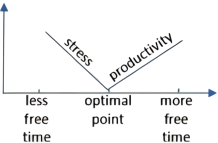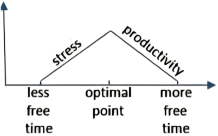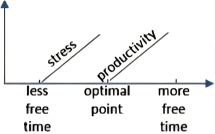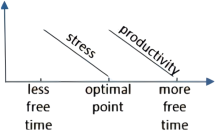1 . Green time that indicates the positive effects of time spent in nature may be the medicine to screen time for children’s brains, improving their school performance, mental health and wellbeing, research suggests.
A review of existing research has found evidence that green time could reduce or help lessen the negative effects of time spent on watching TV, computers or playing video games.
“Few studies considered screen time and green time together, and possible mental effects on each other,” said the psychology researcher Tassia Oswald of the University of Adelaide who reviewed all the published studies on the subject from the English speaking world.
“However, there is evidence that green time could reduce consequences of high screen time. Therefore nature may be a wonderful public health resource for youth psychological wellbeing in a hightech era.”
Ms. Oswald is now planning a pilot study with the South Australian Health and Medical Research Institute to further explore the interaction between screen time and green time among young people.
“It’s really hard to reduce young people’s screen time. Technology is here to stay and it’s really important in a lot of aspects of life,” she said. “So it would be great to work out how we can relieve some of the psychological influences of that. As green time would be great, we need to look into it further to strongly support that idea.”
Ms. Oswald said there was a growing trend towards prescribing (开处方) time in nature for health benefits. She said some doctors in the US and the UK offered “green prescriptions”, while “forest bathing” was popular in Japan.
“However, the question of what made up quality green time is still up for discussion,” she said. Research suggests the answer depends on the age of the child. For preschoolers, a private garden is important. Primary school aged children need a larger place to play and for teenagers, the nature of the neighbourhood is important.
1. Which one belongs to green time?| A.Watching movies in an outdoor cinema. |
| B.Taking care of animals kept in the zoo. |
| C.Playing hide and seek in a hotel lobby. |
| D.Hiking in the mountains. |
| A.Positive. | B.Neutral. | C.Indifferent. | D.Pessimistic. |
| A.It can remove the negative effects of screen time completely. |
| B.Ms. Oswald holds the belief that it needs to be studied further. |
| C.Getting it requires a prescription from the doctors in the US and the UK. |
| D.Its interconnection with screen time has been mentioned in many published studies. |
| A.More connections between green time and screen time will be explained. |
| B.More material about the theory behind green time will be shown. |
| C.More specific examples of high quality green time will be listed. |
| D.More experts studying green time will be introduced. |
2 . How many times have you complained, “There aren’t enough hours in the day!?”
Holly Gabrielle White, a vlogger who graduated from the University of Cambridge, probably disagrees. After she began school in August 2016, White started a channel on the video-sharing website YouTube.
In her videos, the 22-year-old gets up at 6:30 am and goes to bed at 10:30 pm every day. In between, she balances studying, cooking, house cleaning and exercising.
A similar case happened to college students in China. Months ago, the official Tsinghua University microblog account showed pictures of students’ plans, study notes and daily schedules. In one of them, an undergraduate tightly arranges his daily life. He usually goes to bed at 1 :00 am and gets up at 6:00 am. Although he only takes 10 classes a week , the rest of his day will be fully booked. He starts his day by pre-reading his textbooks at 6: 40 am, and ends with a summary of his studies.
Both students’ hard work has certainly paid off. White was at the top of her 152 other classmates and the Chinese undergraduate won a first-class scholarship four years in a row.
Some may wonder how they can avoid exhaustion, stress and burnout. White’s video Time Management &Organization Tips All Students Should Know may provide an answer. She advises how to write our tasks in a set order on a to-do list.
Indeed, things must be carefully planned before we act, and then “twice as much can be accomplished with half the effort”, as the old Chinese saying goes.
| A.If he failed to follow the schedule |
| B.It records her daily life on campus |
| C.They all set good examples to us |
| D.The two have something in common |
| E.When he feels like it is hard to stick to his schedule |
| F.We should also know how to avoid and release stress |
| G.Sometimes she finds time to meet up with friends and speak to her family online |
3 . Many people who live on Norway’s far-northern island of Sommaroey are campaigning to go “time-free”. They note that between May and July, the sun does not set there for 69 days.
To enjoy the bright summer months, they would like to ignore traditional business hours. For example, stores would be open when people are there to work at them. Schools would operate when teachers and students are ready. Kjell Ove Hveding is one of the local leaders of the campaign. He said the 350 people who live on the island already go mostly time-free. He said that in the summer at 2 in the morning, you might see “children playing soccer, people painting their houses or mowing their lawns, and teens going for a swim”.
To show their feelings about time, many islanders take off their watches. They leave them on a bridge that connects the island to the mainland.
Earlier this month, Hveding met with a Norwegian lawmaker. Hveding presented a formal request signed by people who live on the island. The request asked the government to declare the area a “time-free zone”.
Hveding noted that he understands going completely time-free would be too complex in a world that operates on schedules. And, as an article in the Smithsonian magazine says, people’s health depends on keeping a usual rhythm of being asleep and being awake.
But Hveding argues that letting go of time limits can also be good for people. He said the time-free proposal would permit the islanders to get used to the daylight and feel calmer. “The idea is also to chill out,” he said, “I have seen people suffering from stress because they were pressed by time.”
1. What is Paragraph 2 mainly about?| A.People’s ways to work during summer. |
| B.People’s ways to spend business hours. |
| C.People’s ways to enjoy time-free months. |
| D.People’s ways to entertain during summer. |
| A.It was put forward by a lawmaker. |
| B.It was approved by the islanders. |
| C.It was rejected by the government. |
| D.It was about a “trade-free zone”. |
| A.To prove going time-free would be beneficial to the islanders. |
| B.To show the article’s view in the magazine is wrong. |
| C.To introduce the lifestyle of the islanders. |
| D.To present people’s suffering from time pressure. |
| A.A news report. |
| B.A geography book. |
| C.A health magazine. |
| D.A travel brochure. |
4 . For many high school students, it seems that there is never enough time. There are several steps you can take to organize your time better.
Make a to-do list every day. It makes it easy to plan any activities or meetings you may have in addition to homework. Be sure to set priorities (优先事项).
Use spare time wisely. Instead of wasting your spare time, read a book or do homework.
Decide on the time that is good for you to do certain things. If you are more of a morning person, try getting up an hour earlier and do schoolwork before school.
Review your notes every day.
Tell your friends and family about your work timetable. Explain that you will be working at certain times and ask them not to disturb you.
| A.Set goals for yourself. |
| B.Get a good night’s sleep. |
| C.Do the most important tasks first. |
| D.And also, do not be afraid to say “no”. |
| E.You should finish your task on time. |
| F.Don’t take phone calls during the time you set aside for work. |
| G.Don’t wait until just before a test to try and remember everything. |
5 . Big productive and efficient is important to students. We might have a lot of tasks to do. We need to manage our leisure time to do things we like or hangout with friends.
Attend every class. Wait! I know everyone is getting confused now.
Put your phone away. I know it is really hard. I cannot put down my phone because I am a heavy YouTube addict. However, my world has changed since I found the app Forest.
| A.Find some friends to study together. |
| B.And we might get a part-time job to do. |
| C.You won’t forget the most important things. |
| D.It is an app which helps you put down your phone. |
| E.To manage your time better, it would be a great idea to have a planner. |
| F.Why does attending every class help us manage our time more efficiently? |
| G.In addition, when you are revising before the exams, you can help each other. |
6 . Daylight Saving Time ended on November 6, and most Americans have turned their clocks back an hour. At 6:50 am these days, my sixth-grader, Joanna, is now awake. When she sets off for school, the sun has been up nearly a full hour. Just a 60-minute change has lightened both the morning and her mood(心情). At breakfast today, I think I even saw a smile.
When we move our clocks forward an hour, noon no longer is the time when the sun is near its highest point in the sky. Suddenly, body’s schedules don’t keep in step with solar, which is a big thing biologically(生物学上地).
Humans have long had a daily cycle of light and dark. That sets the paces of our bodies, from when we sleep and wake to when hormones(荷尔蒙) are let out. Morning light, in particular, means the time to wake up. Dark mornings and light evenings mean people’s body clocks don’t line up with the sun. That mismatch can influence sleep, making for sleepy people. In the evenings,if there’s still light in the sky, it messes with our brains. The brains of teens are even more sensitive(敏感的). Their brains wait an hour or two longer to let out melatonin, which tells the bodies of kids and adults alike that it’s time to go to sleep. Bedtime can be hard for older kid because they’re just not as sleepy as they used to be. And as I’ve leaned with my daughter, I you throw early school stat times in the mix, rising and shining can be even harder.
But when Daylight Saving Time begins again in March, we’ll also have to adjust(适应). I don’t know if my daughter will ever be bright-eyed and bushy-tailed in the mornings (I’m not), but when mornings eventually get darker, experts’ advice may give us something to fall back on: regular sleep, meal and exercise.
1. How did Joanna probably feel on the mornings during Daylight Saving Time?| A.Excited. | B.Sad. | C.Energetic. | D.Patient. |
| A.Their biological clock and the sun are mismatched. |
| B.An earlier bedtime leads to sleeplessness. |
| C.The lateness of waking up time causes tiredness. |
| D.Daylight Saving Time leads to too much sleep. |
| A.About five months. | B.About six months. |
| C.About eight months. | D.About eleven months. |
| A.Unclear. | B.Hopeful. | C.Unsupportive. | D.Uncaring. |
7 . Applying the correct time management skills and tips can help you get more organized and increase productivity. The more of these tools you learn to use, the more that you will get done each day.
Schedule your time.
Start Early. To increase productivity, start your day early. The more time you take to sit, think, and plan, the better organized you will be in every area of your life. In the biographies and autobiographies of successful men and women, almost all of them have one thing in common. They developed great organizational skills and the habit of going to bed at a reasonable hour and rising early. Many successful people arise at 5:00A.M. or 5:30A.M.
| A.Prepare in advance. |
| B.It reduces stress and releases energy. |
| C.Increase productivity with prime time. |
| D.As a result , it improves your sense of personal power. |
| E.Then they can have enough time to think and plan for the coming day. |
| F.Your most important work requires that you be at your best , and creative. |
| G.A major benefit of doing so is that this exercise lets you sleep more soundly. |
8 . The most important skill I picked up at school was keeping a routine. Routines allow us to develop a rhythm to our lives, but they also have their downsides.
It can be easy to get so accustomed to your routine that you don’t realize you’re no longer conscious of your time. This can stop progress, which means you start living your life on autopilot. It’s important that you include time in your routine for self-reflection. Doing the same thing week after week can be dull. If you make time to try new things and explore new interests, you can adjust your routine to better fit your lifestyle as things change.
When I first came to college, I was told countless times that it’s important you develop a routine so you can focus on things important to you. But it’s easy to forget the bigger picture. I got so used to the same old things that I would often forget about all of the other fun and exciting opportunities college had to offer.
It wasn’t until my junior year that I really started setting time aside to explore things that were interesting to me. This was partly because COVID-19 and lockdown made my college life a lot more boring. It was this experience that made me realize I was stuck in a rut, a feeling I’m sure many came to terms with. I decided I was going to make a change. I needed to find a balance between keeping a structured schedule and finding time to be creative and try new things.
I started writing and doing research to apply the things I learned in class. I started learning new instruments, visiting new places around town and exploring new ways to get involved in the local community. All of these different experiences allowed me to look at the things I was doing from a new perspective. It made me reassess what I’m doing with my life and pursue new goals, which have added tremendous value to my life.
Routines are important, yes, but don’t forget: it’s not the routine that determines your life. It’s only you who can decide how you spend your time, so don’t forget to throw something new in there from time to time. Above all else, don’t live your life on autopilot.
1. What can happen if we “live our lives on autopilot” according to the author?| A.We make rapid progress. |
| B.We get bored by our dull lives. |
| C.We forget to practice self-reflection. |
| D.We become more sensitive to changes. |
| A.It was vital to develop a routine. |
| B.A structured schedule helped beat boredom. |
| C.He should focus on important things. |
| D.He should lead a more balanced life. |
| A.He changed his career path. |
| B.He changed his major in college. |
| C.He paid more attention to his books. |
| D.He enriched his social life. |
| A.We should balance our school work and interests. |
| B.It’s important to explore possibilities outside our routines. |
| C.Our routines define our goals and who we are. |
| D.Colleges offer us numerous opportunities to try new things. |
9 . Are You Using Your Time Wisely?
Time. You get the same amount every single day. It is predictable, with scheduled times for sunrises and sunsets. Time is one of the few predictable elements in life.
What would you do if someone gave you $86,400 as a gift? Would you think long and hard about how you would use that money, and what fun or important things you would do with it? That’s the number of seconds we are given each and every day. But do you get up in the morning and think about what valuable and important things you will do with every second? Very few people do. So, start thinking about your “gift” of 86,400 seconds each day. Use them wisely each and every day.
Define what you care about. You have to make a living, pay the bills, attend to your family in need, finish the paper due for class and cook your meals. There are certain non-negotiables, but while you are doing all of these “have-to” things, consider what you care about.
Get attached to your calendar. Plan “me time,” “thinking time,” and “time-to-plan time” in your notebook.
Becoming more mindful and deliberate about your time will help you focus on it more thoroughly and find the gifts in every moment you are given.
| A.Become a planner. |
| B.Do things mindfully. |
| C.Do you want to enjoy the process? |
| D.Don’t expect this will just unfold naturally. |
| E.No one gets more in a day than anyone else. |
| F.Here’s what you can do, especially if you are busy and time seems to disappear. |
| G.Most of us don’t live as if our time is limited, and therefore waste too much of it. |
10 . Up and down the economic ladder, many Americans who work—and especially those raising kids—are pressed for time, wishing they had more of it to devote to leisure activities (or even just sleeping). At the same time, research has indicated that people who are busy tend to be happier than those who are idle, whether their busyness is purposeful or not.
A research paper released late last year investigated this trade-off, attempting to pinpoint (精确指出) how much leisure time is best. Its authors examined the relationship between the amount of “discretionary time” people had—basically, how much time people spend awake and doing what they want—and how pleased they were with their lives.
The paper, which analyzed data covering about 35,000 Americans, found that employed people’s ratings of their satisfaction with life peaked when they had in the neighborhood of two and a half hours of free time a day. For people who didn’t work, the optimal (最佳) amount was four hours and 45 minutes.
The research traced a correlation (关联) between free time and life satisfaction, but didn’t provide any definitive (最后的) insight into what underlies that correlation—“which is exciting, because this is a work in progress,” says Cassie Mogilner Holmes, a professor at UCLA’s Anderson School of Management and a co-author of the paper, which hasn’t yet been peer-reviewed or published in an academic journal.
An experiment that the researchers arranged hinted at (暗示) a possible explanation of the correlation they found. They asked participants to picture and describe what it would be like to have a certain amount of daily free time, and then report how they’d feel about that allotment (分配). “What we find is that having too little time makes people feel stressed, and maybe that’s obvious,” says Holmes. “But interestingly, that effect goes away—the role of stress goes away—once you approach the optimal point.” After that point, Holmes says, the subjects started to say they felt less productive overall, which could explain why having a lot of free time can feel like having too much free time.
It’s not clear what an individual is to do with these findings, since the amount of free time people have usually has something to do with a variety of factors, such as having children or a degree of control over work schedules. Holmes shared her research with the MBA students in her class on happiness, and some of the most time-crunched among them were comforted by the findings: “I think that two and a half hours creates a nice goal that even if you increase a little bit more of your discretionary time use, you can expect that it will translate into greater life satisfaction.”
1. According to the passage, what happens to Americans occupied with their work?| A.They allow themselves more leisure time. |
| B.They keep themselves busy on purpose. |
| C.They know how much leisure time is best. |
| D.They experience higher level of satisfaction. |
| A.Researchers have cast light on the cause of the correlation. |
| B.Unemployed people need more leisure time to feel content. |
| C.The paper on the correlation has achieved peer recognition. |
| D.Employed people enjoy more leisure time in the neighborhood. |
A. | B. |
C. | D. |
| A.Holmes is optimistic about the influence of her findings |
| B.individuals are encouraged to control their work schedules |
| C.people with tight schedules can’t benefit from the findings |
| D.the MBA students find no free time to obtain life satisfaction |



